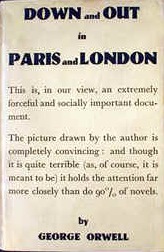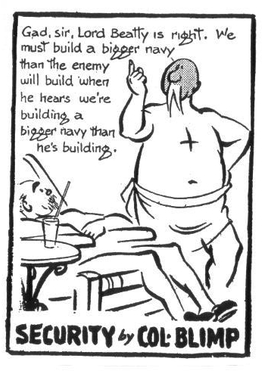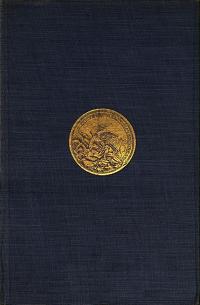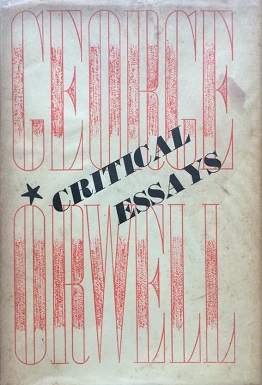Related Research Articles

Eric Arthur Blair was an English novelist, essayist, journalist, and critic who wrote under the name George Orwell. His work is characterised by lucid prose, social criticism, opposition to totalitarianism, and support of democratic socialism.

Down and Out in Paris and London is the first full-length work by the English author George Orwell, published in 1933. It is a memoir in two parts on the theme of poverty in the two cities. Its target audience was the middle- and upper-class members of society—those who were more likely to be well educated—and it exposes the poverty existing in two prosperous cities: Paris and London. The first part is an account of living in near-extreme poverty and destitution in Paris and the experience of casual labour in restaurant kitchens. The second part is a travelogue of life on the road in and around London from the tramp's perspective, with descriptions of the types of hostel accommodation available and some of the characters to be found living on the margins.

Colonel Blimp is a British cartoon character by cartoonist David Low, first drawn for Lord Beaverbrook's London Evening Standard in April 1934. Blimp is pompous, irascible, jingoistic, and stereotypically British, identifiable by his walrus moustache and the interjection "Gad, Sir!"

Rudolf John Frederick Lehmann was an English publisher, poet and man of letters. He founded the periodicals New Writing and The London Magazine, and the publishing house of John Lehmann Limited.

Thomas Henry Wintringham was a British soldier, military historian, journalist, poet, Marxist, politician and author. He was a supporter of the Home Guard during the Second World War and was one of the founders of the Common Wealth Party.
Polemic was a British "Magazine of Philosophy, Psychology, and Aesthetics" published between 1945 and 1947, which aimed to be a general or non-specialist intellectual periodical.
Charles Duff was a Northern Irish writer of books on language learning. He also wrote a popular book on hanging and other means of execution.
The Fortnightly Review was one of the most prominent and influential magazines in nineteenth-century England. It was founded in 1865 by Anthony Trollope, Frederic Harrison, Edward Spencer Beesly, and six others with an investment of £9,000; the first edition appeared on 15 May 1865. George Henry Lewes, the partner of George Eliot, was its first editor, followed by John Morley.
"The Lion and the Unicorn: Socialism and the English Genius" is an essay by George Orwell expressing his opinions on the situation in wartime Britain. The title alludes to the heraldic supporters appearing in the full royal coat of arms of the United Kingdom. The essay was first published on 19 February 1941 as the first volume of a series edited by T. R. Fyvel and Orwell, in the Searchlight Books published by Secker & Warburg. Orwell's wife Eileen Blair described the theme of the essay as "how to be a socialist while Tory."

The Twilight of the Gods and Other Tales is a collection of fantasy short stories by Richard Garnett, generally considered a classic in the genre. Its title notwithstanding, the collection "has nothing to do with the Norse gods—although it draws upon everything else, from Arabic legends and Chinese fairy tales to Roman history and Greek mythology." The title story actually concerns the release of Prometheus, upon the ultimate eclipse of Greek paganism by Christianity, from the torture to which he was sentenced by Zeus.
The Criterion was a British literary magazine published from October 1922 to January 1939. The Criterion was, for most of its run, a quarterly journal, although for a period in 1927–28 it was published monthly. It was created by the poet, dramatist, and literary critic T. S. Eliot who served as its editor for its entire run.
"The Prevention of Literature" is an essay published in 1946 by the English author George Orwell. The essay is concerned with freedom of thought and expression, particularly in an environment where the prevailing orthodoxy in left-wing intellectual circles is in favour of the communism of the Soviet Union.
"Bookshop Memories" is published in 1936 by the English author George Orwell. As the title suggests, it is a reminiscence of his time spent working as an assistant in a second-hand bookshop.
"Some Thoughts on the Common Toad" is an essay published in 1946 by the English author George Orwell. It is a eulogy in favour of spring.
"A Good Word for the Vicar of Bray" is an essay by the English author George Orwell. In it Orwell encourages the public-spirited action of planting trees, which may well make up for the harm people do in their lives. The essay was first published in Tribune on 26 April 1946.
Humphrey Richard "Hugh" Slater (1906–1958) was an English author and painter.

The bibliography of George Orwell includes journalism, essays, novels, and non-fiction books written by the British writer Eric Blair (1903–1950), either under his own name or, more usually, under his pen name George Orwell. Orwell was a prolific writer on topics related to contemporary English society and literary criticism, who has been declared "perhaps the 20th century's best chronicler of English culture." His non-fiction cultural and political criticism constitutes the majority of his work, but Orwell also wrote in several genres of fictional literature.

Inside the Whale and Other Essays is a book of essays written by George Orwell in 1940. It includes the eponymous essay "Inside the Whale".
NOW was a British political and literary periodical founded in 1940 by George Woodcock, its first editor, from 1940 to 1941, and by Freedom Press from 1943 to 1947.

Critical Essays (1946) is a collection of wartime pieces by George Orwell. It covers a variety of topics in English literature, and also includes some pioneering studies of popular culture. It was acclaimed by critics, and Orwell himself thought it one of his most important books.
References
- 1 2 The Collected Essays, Journalism and Letters of George Orwell, Volume 1 – An Age Like This 1939–1940, p. 250. Penguin
- ↑ "John Lehmann" Encyclopædia Britannica. Retrieved 28 December 2013.
- ↑ Lehmann, John Folios of New Writing, Issue 1, p. 9. Hogarth Press, 1940 At Google Books. Retrieved 23 December 2013.
- ↑ Orwell and Politics. Penguin UK, 2001 At Google Books. Retrieved 23 December 2013.
- 1 2 Steve Ellis, British writers and the approach of World War II. New York: Cambridge University Press, 2015. ISBN 9781107054585 (p. 175)
- ↑ The Collected Essays, Journalism and Letters of George Orwell, Volume 1 – An Age Like This 1939–1940, p. 426. Penguin